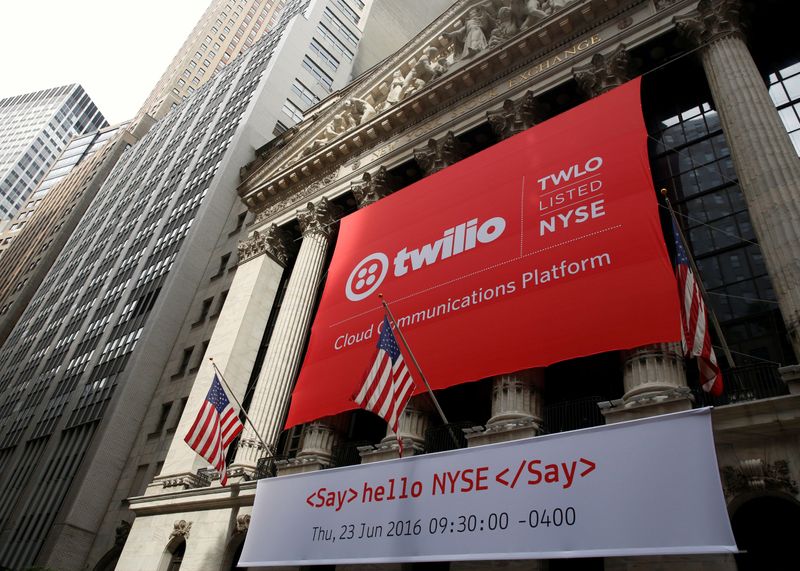By Supantha Mukherjee
(Reuters) - Twilio Inc (N:TWLO) shares surged 32% to a record high after the cloud communication provider's quarterly results and forecast smashed Wall Street estimates on increased demand from telehealth and education companies amid widespread lockdowns.
At least eight brokerages raised their price targets on the stock. Mizuho made the most bullish brokerage, raising its target by $55 to $180.
"Twilio stands to be a significant beneficiary of COVID-19 in the short term, boosting usage volumes dramatically," Mizuho analysts wrote in a note. "Longer term we expect the company to sustain robust growth."
The San Francisco, California-based company said demand in the quarter dwindled from several of its top customers, including home rental startup Airbnb and ride-hailing firms Uber (N:UBER) and Lyft (O:LYFT), which have taken a hit from shelter-in-place orders to stop the spread of the new coronavirus.
This was, however, offset by increased use of its cloud-based services by call centers, education companies, healthcare and food delivery firms, the company said.
"Despite CV19 disruptions where industry demand abruptly slowed in March at small businesses and digital native customers including Airbnb, Uber, Lyft, and Lime, it was shocking to us that in these conditions TWLO delivered the largest absolute revenue beat since IPO," Piper Sandler (NYSE:PIPR) analysts said.
Out of the 26 brokerages covering the stock, 19 have a "buy" or higher rating and the rest are on "hold".
The company reported first-quarter revenue of $364.9 million, well above the average market estimate of $331.3 million. It also forecast current-quarter revenue of $365 million to $370 million, above expectations of $336.9 million.
"We get the sense that the company is enthusiastic about incremental growth in the healthcare vertical and sees the potential for Video APIs being a long-term growth driver (today it is much smaller than messaging, voice and email)," RBC analysts said.

Twilio had more than 190,000 active customer accounts as of March 31, up 23% from a year earlier.